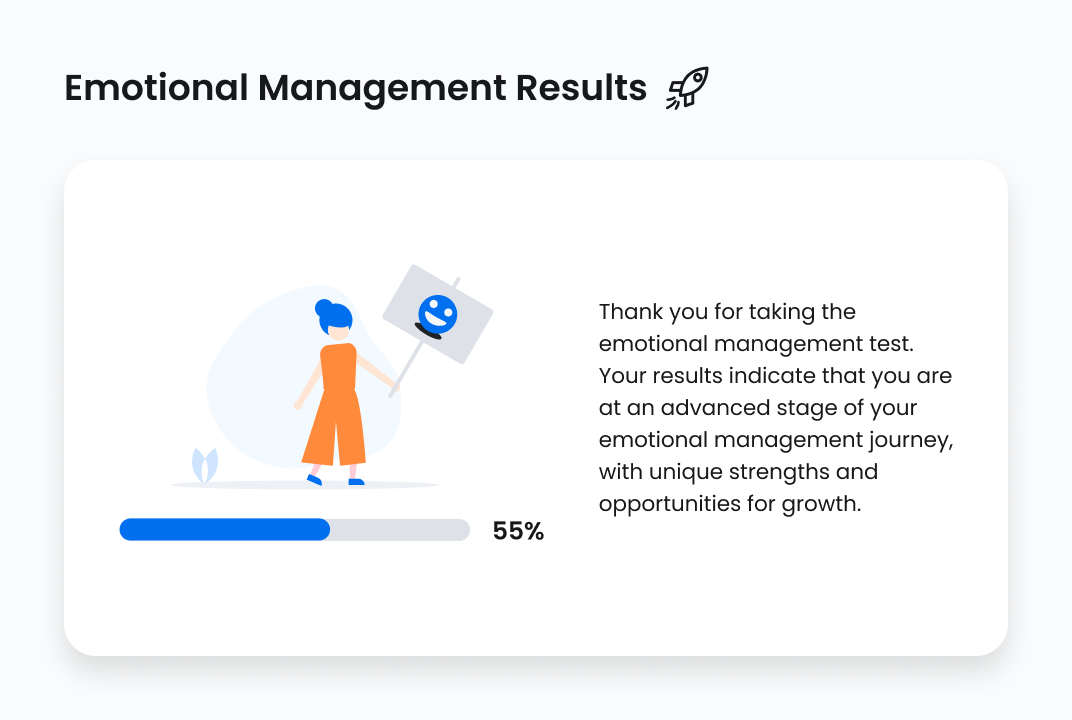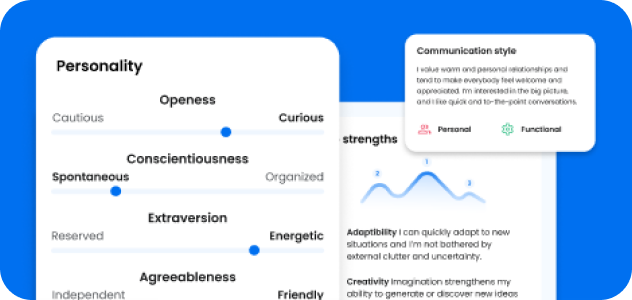Emotion management test

Discover your emotional regulation skills
Benefits
The benefits of an emotional regulation skills assessment include: Increased self-awareness of your emotions, how you respond to them, and the impact they have on your behavior. Improved relationships: with a better understanding of your emotions and how to regulate them, you can communicate more effectively. Manage stress and anxiety more effectively, leading to better mental and physical health outcomes. Increased resilience to bounce back from challenging situations and setbacks more quickly and effectively, leading to increased resilience. Improved decision-making: When you are able to regulate your emotions, you can make decisions more objectively and with greater clarity.
Discover your emotional regulation skills
How you can use this test?
How it works?
you’re at ease, undisturbed
and ready to focus.
you through the process. It’s
easy - just go with your gut
feeling.
you will receive your
feedback immediately
anyone, with just a click of a
button
What's Inside? Get immediate feedback by measuring these traits in you
Emotion management test
Assessment Insights
Scientific and Empirical Foundations
Emotion regulation and its importance: Gross, J. J. (1998). The emerging field of emotion regulation: An integrative review. Review of General Psychology, 2(3), 271-299. Emotional management and its effects on stress: Tugade, M. M., & Fredrickson, B. L. (2004). Resilient individuals use positive emotions to bounce back from negative emotional experiences. Journal of Personality and Social Psychology, 86(2), 320-333. Emotional management and interpersonal relationships: Gross, J. J., & John, O. P. (2003). Individual differences in two emotion regulation processes: Implications for affect, relationships, and well-being. Journal of Personality and Social Psychology, 85(2), 348-362. Emotional management training in the workplace: Brackett, M. A., Rivers, S. E., & Salovey, P. (2011). Emotional intelligence: Implications for personal, social, academic, and workplace success. Social and Personality Psychology Compass, 5(1), 88-103. Emotional management and team dynamics: Riggio, R. E., & Reichard, R. J. (2008). The emotional and social intelligences of effective leadership: An emotional and social skill approach. Journal of Managerial Psychology, 23(2), 169-185. Emotional management in leadership: George, J. M. (2000). Emotions and leadership: The role of emotional intelligence. Human Relations, 53(8), 1027-1055.


